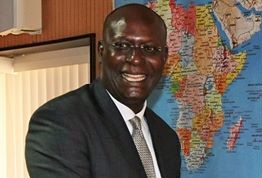By Asma’u Ahmad
United Nations Children’s Fund (UNICEF) on Thursday urged countries to invest in family-friendly policies that support early childhood development.
UNICEF Representative in Nigeria, Mohamed Fall, made the call in a statement in Abuja. He emphasised that such investment should include paid paternity and maternity leave, free pre-primary education and paid breastfeeding breaks.
He added: “Implementing national family-friendly policies that support early childhood development, including paid paternity leave, the government can provide parents the time, resources and information to take care of their children.’’
Quoting recent analysis conducted by UNICEF, Fall noted that two in three children below the age of one lived in countries where fathers were not entitled to a ‘single day’ of paid paternity leave by law.
He identified the new analysis as part of the organisation’s “Super Dads” campaign aimed at breaking barriers that prevented fathers from playing active role in their young
children’s development.
He explained that the campaign focused on the importance of love, play, protection and good nutrition for healthy development of children’s brain.
He specifically noted that about 90 million children lived in such countries where their fathers were not entitled to such pays.
According to him, positive and meaningful interaction with mothers and fathers from the very beginning helps to shape children’s brain and development for life, making them healthier, happier and increases their ability to learn.
He noted that “evidence suggests that when there is bond between fathers and their babies from the beginning of life, they are more likely to play active roles in the children’s development.
“Research also suggests that when children positively interact with their fathers, they have better psychological health, self-esteem and life-satisfaction in the long-term.
“A total of 92 countries, including Nigeria and India which have high infant population do not have national policies in place that ensure new fathers get adequate paid time off with their newborn babies.
“In comparison, countries with high infant populations, including Brazil and Democratic Republic of the Congo have national paid paternity leave policies albeit offering relatively short-term entitlements.
“The government’s recent commitment to extend maternity leave from 12 to 16 weeks indicates that the momentum for family-friendly policies in Nigeria is growing.
“Investments in the provision of support services to caregivers, as well as quality pre-primary education and good nutrition for children are investments in healthy and productive future Nigerian generations’’, Fall said.



